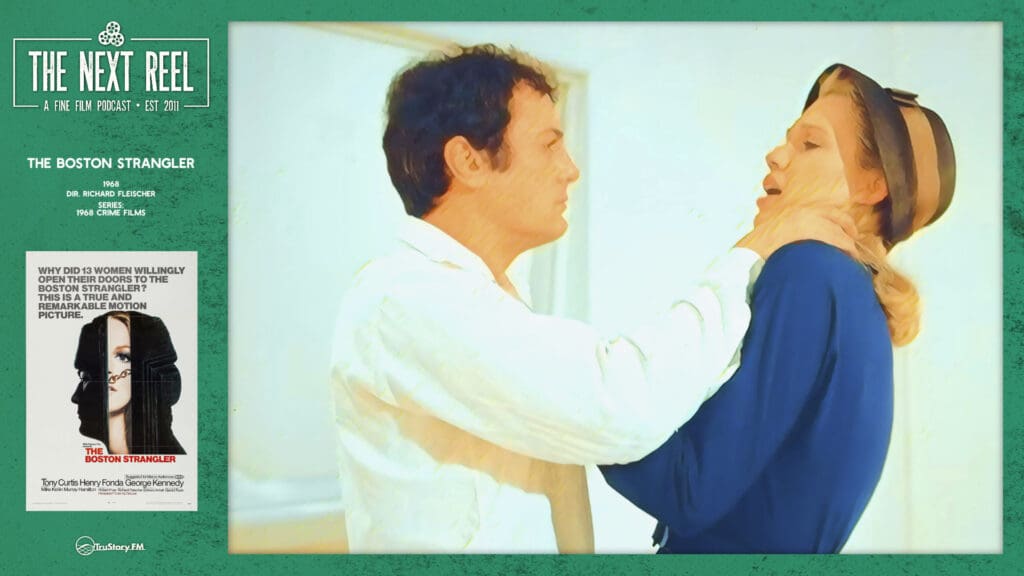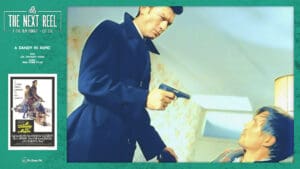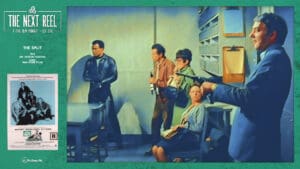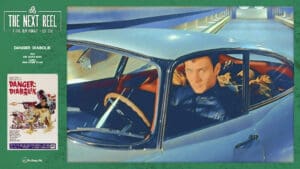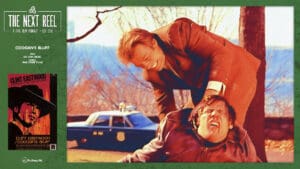Setting the Stage for a Controversial True Crime Adaptation
In 1966, writer Gerald Frank published his bestselling book about the Boston Strangler case, catching the attention of 20th Century Fox and producer Richard D. Zanuck. Director Richard Fleischer, known for his genre work, was brought on to helm the project. Against initial studio resistance, Tony Curtis lobbied hard for the lead role of Albert DeSalvo, even doing a screen test that convinced Zanuck. The film aimed to tell the story of the infamous Boston Strangler cases while they were still fresh in public memory. Join us – Pete Wright and Andy Nelson – as we continue the 1968 Crime Films series with a conversation about The Boston Strangler.
Strangling Expectations: A Deep Dive into The Boston Strangler
The film takes a fascinating approach to its subject matter by withholding DeSalvo’s appearance until halfway through, building tension through police procedural elements and Henry Fonda’s measured performance as John Bottomly. We discuss how Fleischer’s innovative use of split-screen techniques helps tell multiple narrative threads simultaneously, while exploring the psychological complexity of the case. Though some period elements feel dated, Tony Curtis delivers a transformative performance that deserved Oscar recognition.
Further Investigation into the Film’s Impact
- Richard Fleischer’s masterful direction and experimental visual style
- The film’s treatment of psychological themes versus historical accuracy
- Strong supporting performances from George Kennedy and Sally Kellerman
- Contemporary critical response, including Roger Ebert’s moral objections
- How the film stands up against modern true crime adaptations
- The evolution of public understanding of the actual case
The Boston Strangler remains a compelling piece of cinema despite its historical inaccuracies. While the film takes creative liberties with the true story, its innovative visual style and Curtis’s remarkable performance make it a standout entry in the 1968 crime film genre. We have a great time talking about it, so check it out then tune in. The Next Reel – when the movie ends, our conversation begins!
Film Sundries
- Watch this on Apple or Amazon, or find other places at JustWatch
- Script Options
- Theatrical trailer
- Original Material and on Audible
- Letterboxd







